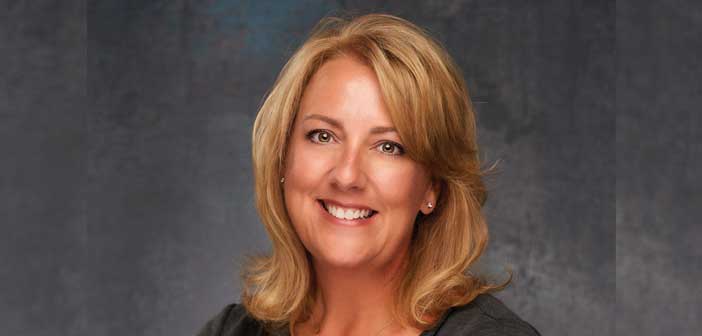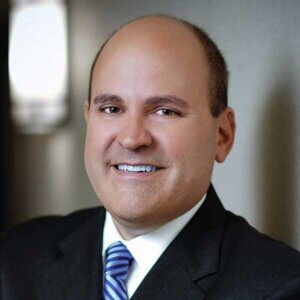Today’s industry challenges are faced by brands of all chain scales, and they all have their own processes to deal with them. Hotel Business caught up with Julie Arrowsmith, president/interim CEO, G6 Hospitality; Greg Juceam, president/CEO, Extended Stay America; and Ryan Rivett, president/CEO, My Place Hotels of America, who discussed how their brands are performing this year, how they are tackling the current challenges and their forecasts for the rest of 2023.
—Adam Perkowsky
Has the year gone as expected so far for your company? Please explain why or why not.
Arrowsmith: It has now been almost a full calendar year since G6 Hospitality transitioned to an entirely franchised model. We made this decision to ensure we could remain focused on branding and franchising—ultimately supporting owners and ensuring guests have affordable, convenient lodging options.
We’ve been very pleased with our network growth over the past year and see continued resilience and opportunity in economy lodging alongside a growing demand for affordable, comfortable lodging options, particularly in the extended-stay segment. This has driven growth and created an attractive investment opportunity for owners and investors. Our pipeline remains strong across both our Motel 6 and Studio 6 brands.
Juceam: Our primary objective this year has been to mature and evolve the company in a dozen or so strategic areas—and we are moving the ball forward as expected. Some of these areas include the formal launch of ESA Select Suites (our new economy extended-stay brand); growing our franchise pipeline and support resources for both new-builds and conversions; further enhancing our brand reputation by deflagging certain noncore assets; and implementing Call Center AI and a state-of-the-art central reservations system. Financially, our metrics remain stronger than where we were pre-pandemic.
Rivett: Cumulatively, we’re pretty well in line with internal forecasting; however, shifting demand characteristics have certainly precipitated some juxtaposition in periodic year-over-year expectations. In general, the 2023 picture could be painted as being about 30-45 days behind typical accretive pacing, which leaves us hopeful as we anticipate a better fourth quarter and Q1 2024.
Inflation, financing and labor issues have been among the biggest headwinds in the industry. How has your company helped its franchisees to overcome these challenges?
Arrowsmith: Our deep-rooted history in economy lodging operations is one of our key differentiators and allows us to share knowledge and support owners in a way that’s unique to the industry. We treat every owner as an individual with individual needs, whether this is their first Motel 6 or 60th. Our team provides guidance throughout the application process, the construction (or renovation) and opening plans, and then ongoing operational support through our brand performance, sales and marketing teams—not to mention that as a G6 franchisee, they are introduced to a network of owners across all experience levels—an incredibly valuable resource.
When it comes to recruitment and retention, we’re encouraging our owners to come together to offer long-term careers for hotel staff. Economy lodging provides a fantastic way to see and be responsible for the entire hotel operation vs. just one department. There are numerous success stories of team members moving up and ultimately becoming hotel owners and operators.
Juceam: ESA enjoys a well-earned reputation for being among the most pragmatic brands in the industry, both during and following COVID. As a brand family that is rooted in economy and midscale hotels only, we maintain our longstanding value proposition for both guests and franchise partners by providing travelers with what they need without the frivolous extras. This helps keeps room rates affordable for guests and construction/renovation, operating and labor costs reasonable for our franchise partners.
Rivett: I think everyone in our industry—in our world, for that matter—remains on the road to overcoming those issues. Our approach toward franchising is and always has been much more intimate and engaged than typical. This characteristic has proven to allow us a better approach in challenging times. Relative to training and operating assistance, our franchise operations and leadership development teams have really kicked their production into high gear by spending more time on property and increasing their pace of production of daily assistance resources. Our franchise development and senior leadership teams have experienced a significant increase in time and resources spent on participating in underwriting and capital planning guidance as franchisees navigate more granular scrutiny from all layers of the capital stack.
How have guest expectations changed since the COVID-19 pandemic?
Arrowsmith: As business travel picks up, there is an interesting trend around “bleisure,” where workers are blending business and leisure travel as guests are more apt to hit the road and work from anywhere. We’re also seeing the next generation of travelers prioritize travel at younger ages. Even prior to the pandemic, we saw Gen Z begin to prioritize travel experiences while expecting and seeking out affordability and comfort on the road. This evolution makes economy lodging even more practical and exciting as travelers look for options that don’t break the bank.
Juceam: While there have been more substantive post-pandemic changes in the full-service segment of the hotel industry, changes to guest expectations in the economy and midscale extended-stay hotel space are much more subtle. Both before and after the pandemic, ESA’s guests expect a clean, comfortable suite with a full kitchen, on-site laundry facilities, enhanced WiFi options and welcoming service.
Post-pandemic, guests are more comfortable with a protracted housekeeping schedule and they are open to varying levels of amenities and services, provided that the price point reflects a fair value proposition for what they are receiving. The proliferation of third-party delivery services for food, groceries and health/hygiene products has been a terrific development for smaller hotels in suburban settings that do not offer on-site dining.
Rivett: Greater expectations of quality and cleanliness have driven operators to level up their firm grasp on daily quality assurance and staff proficiency at all positions. Another measure of changing expectations is represented in the trending reductions in booking time frames. During and shortly after the height of the pandemic, people quickly became accustomed to general last-minute availability and ease of last-minute booking, and that tendency seems to be sticking around. To me, the most interesting and possibly the most easily identifiable change in guest expectations is the demand for their preferences to be heard. As purveyors of hospitality, it’s always been our objective to hear, understand and accommodate our guests. Today, if you miss that mark, you’re going to hear about it and at greater volume than ever.
What’s your forecast for the rest of the year?
Arrowsmith: We expect to open more than 100 hotels this year, and we’re excited about our continued commitment to owners and the investment back into our business. We expect the extended-stay segment will continue to show strong growth.
Juceam: We anticipate steady demand during the remainder of the year, with occupancies over 70%, and rates holding their gains achieved in recent years. Hotels with a deeper mix of long-staying guests will continue to grow market share vs. their transient counterparts as we move into the traditionally slower winter months.
Rivett: We’re going to have a good time for the rest of 2023. Despite the continuing dynamic shifts in labor, demand and input costs, many fundamentals appear to be stabilizing in a manner that promotes actual accretive growth rather than simply the tail ends of a rebound.




